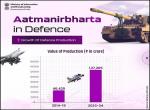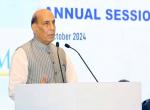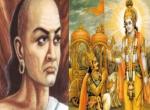Many are seeing Friday’s supreme court directive on police reforms as the beginning of an era of good policing. Will it show India’s colonial cop the door?
Concerned that political interference and politicisation of police were eating into the vitals of civil society, on April 3, 1997, Indrajit Gupta, then home minister, wrote in a letter to chief ministers, ‘‘I have a feeling that if the political executive does not take the desired measures to bring about reforms, the day may not be far when the judiciary may force such sociallydesirable changes down its throat’’. And that is exactly what happened.
It is an irony that India, a vanguard of crusade against colonialism suffered colonial style of policing for six decades, the only change being that the white man was replaced by the brown. But the bigger irony was that in the world’s biggest democracy, the change came, not through the legislature, but by judicial intervention. The temptations of the post-independence elite to use this potent instrument to subserve its power interests was too strong to allow any change. Lacking political sincerity and will, scores of police commissions and committees failed to prevent use, misuse and abuse of the police machinery for the advantage of a select few at the cost of those who needed their help and protection most.
Politicisation of police manifests itself in diverse forms, the worst being interpretation and execution of law in a manner which favoured those in power and hurt those who are seen as adversaries. Over the years, the quest for ‘‘own people’’ and not the best people, contaminated the systems of recruitment, promotions, placements, etc. As politics started polarising around caste and sectarian lines, police also could not remain insulated. Some districts saw more than half-a-dozen SPs in a year. I know at least a dozen cases where a chief minister, to have a state police chief of his own caste or political inclination, selected one with the most undeserving professional record after superseding many deserving and outstanding officers.
The pernicious effect soon percolated to district and police station levels. The supreme court decision will go a long way in correcting this distortion.
Fixed tenures of officers, merit-based selection, setting up of state security commissions and police establishment boards will minimise the scope of political interference and correct distortions.
This judgment is also a tribute to a single man’s determination and resoluteness. Prakash Singh, one of the most brilliant professionals that Indian police has ever produced, who held high positions not because of, but in spite of, politicians, single-handedly challenged the system and fought the battle for a decade with his meagre resources. He filed a Public interest litigation in March 1996 and pursued it against heavy odds to give a policing system to a billion people which they deserved and which their elected representatives would not care to give.
This decision of the supreme court will lead to a police system which will be people sensitive, will uphold supremacy of law over political considerations and encourage competitive professionalism.
The author is a former chief of the Intelligence Bureau
Published in The Times of India on 24 Sept. 2006









Post new comment